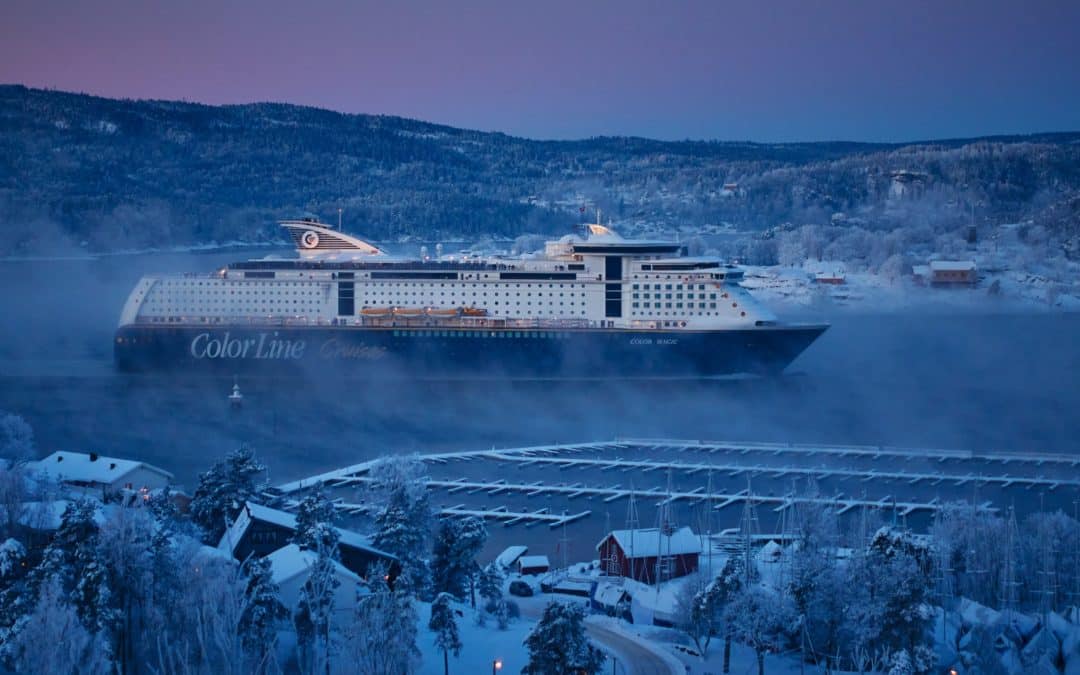Lean Marine, I-Tech and PowerCell will host a virtual industry discussion on safeguarding global fleet efficiency in the post-pandemic era on May 13.
Global transportation sectors continue to suffer the effects of the measures enforced by governments worldwide to minimise the spread of COVID-19. As and when the international shipping industry sails into the post-pandemic era, the optimisation of vessel efficiency will play a crucial role in ensuring the commercial buoyancy of ship owning companies.
Recovery will not be instantaneous. Therefore, maintaining a financially and environmentally sustainable business will be a bigger challenge than ever before. Reducing polluting gaseous emissions in-line with stringent targets set by the IMO will remain high on the agenda. There is reason to believe that the pandemic will further increase demands from environmentally conscious customers on the industry. As such, the operation of cleaner, greener ships with superior fuel efficiency will be required. This means that ship operators will need to maintain any reduction in excess fuel consumption and emissions not only in the short-term during the current unpredictable times, but also in the long-term, when the markets are better and more predictable.
Beating the barnacle
While the COVID-19 pandemic has put many sectors of the industry in ‘time-out’ mode, the same cannot be said for biofouling. For the thousands of marine species that like to make ship hulls their home, the global pandemic has no limiting effect. In fact, for those organisms who can only attach to ships when they are idle, such as barnacles, the housing market is booming.
A great number of tankers are currently at anchor operating as off-shore storage and container shipping is suffering decreased cargo volumes leading to void sailings and suspension of services. Cruise ships are sat idle waiting for No Sail Orders to be lifted and ferries are docked with no passengers to transport. The majority of these ships are anchored in coastal regions and exposed to high densities of barnacle larvae, facing exceptional risk of suffering from fuel consumption and speed penalties when they set sail again. In a future where no one can predict when the next global shift will impact ship operations, how can ship owners safeguard their vessels against highly impact-ful barnacle fouling during extreme static conditions?
Going beyond digitalisation
Digitalisation will continue to play a vital role in enabling enhanced vessel safety, and operational and environmental performance. However, can ship operators achieve greater efficiencies immediately by going beyond digitalisation for performance monitoring? Why should automation play a more integral role in shipping fleet? How could vessels be prepared to follow future AI integration?
Looking towards the zero-emission vessel
Halving the emissions of Greenhouse Gases (GHG) from commercial ships by 2050 will be no mean feat, but it’s not impossible. The suitability of hydrogen fuel cells means that they have the potential to make the global shipping fleet emission-free. Considering the long lifetime of ships, zero emission vessels may have to set sail as early as 2030. This means that this is a technology that should be high on the priority list for ship owners intending to meet IMO targets. Therefore, what do ship owners need to consider when analysing whether hydrogen fuels cells are suitable for deployment on their vessels?
Discussion and debate at your desk
Since interactions between those who work ashore in the maritime industry remain limited to virtual communications and with events postponed until later this year or even early 2021, Swedish clean technology innovators Lean Marine Sweden AB, I-Tech AB and PowerCell Sweden AB are joining forces to discuss and debate current market trends and the role that clean technology will play post-pandemic.
The Swedish clean tech trio will focus on antifouling coatings, propulsion optimisation, digitalisation, and marine fuel cells. An interactive Q&A session will also be held for audience participation.
The live, 75-minute webinar will be broadcast twice on May 13 to ensure that participants worldwide can join. The times for the two sessions are:
- Session 1: 09.00-10.15 CEST / 15.00-16.15 SGT / 17.00-18.15 AEST
- Session 2: 09.30-10.45 EDT / 14.30-15:45 BST / 15.30-16.45 CEST
Register for session 1 here: Session 1
Register for session 2 here: Session 2

